Congres 5 juni 2023: Artistieke autonomie: bestaat het wel?
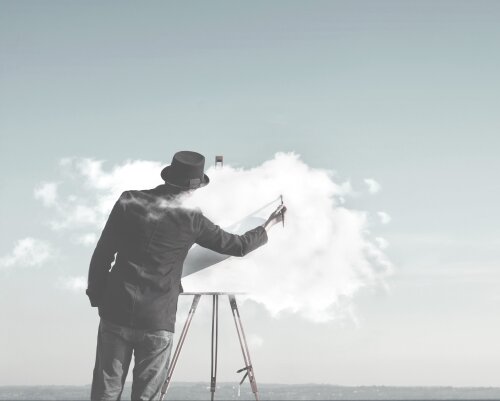
©Shutterstock
Elk jaar organiseert het Fonds voor Cultuurmanagement een congres over een relevant managementthema dat leeft in de kunst- en cultuursector. Het Fonds wil daarmee bijdragen tot de reflectie en kennisdeling omtrent het cultuurmanagement en het debat stimuleren met de culturele actoren, het beleid en de academische wereld.
Artistieke autonomie is een belangrijk thema, omdat het de kern vormt van de artistieke vrijheid van kunstenaars en de integriteit van hun werk. Maar bestaat het wel? Een kunstenaar/culturele organisatie dient zich te verhouden tot een aantal stakeholders: zoals de politiek, private spelers en de samenleving, waarbij die artistieke autonomie telkens in vraag kan worden gesteld:
- vanuit de idee dat men zich als kunstenaar maatschappelijk moet verantwoorden om recht te hebben op subsidies (externe politieke sturing)
- vanuit de idee dat men zich als kunstenaar economisch moet verantwoorden om zijn bestaan te kunnen legitimeren (economisering)
- vanuit de idee dat men zich als kunstenaar moet verantwoorden om recht te hebben op erkenning (moralisering)
Die verantwoording kan zowel intrinsiek zijn - waarbij de kunstenaars of culturele organisaties vanuit zichzelf bepalen hoe hij/zij zich dienen te verhouden tot hun stakeholders - als extrinsiek zijn: anderen leggen het hen op. De Nederlandse academicus Theodorus Bernardus Jozef Noordman benoemde financiers, publiek en peers die bepalen wat kunstenaars of culturele organisaties succesvol maakt. Deze ’trias artistica’ bepaalt dus ook, per definitie, de contouren van de artistieke autonomie.
De context waarin een kunstenaar/culturele organisatie opereert, is momenteel sterk gewijzigd. Vandaag stellen zowel politiek, als de peers en het publiek zich opvallend opiniërend op. Wat betekent artistieke autonomie in deze gewijzigde context? In welke mate botsen kunstenaars en culturele organisaties tegen de limieten van hun artistieke autonomie? Hoe gaan ze er creatief mee om - en kan dat nog wel?
Een grondige discussie hierover is vandaag urgenter dan ooit. Met dit congres heeft het Fonds voor Cultuurmanagement op 5 juni 2023 het thema opnieuw aangesneden, en dit vanuit verschillende perspectieven: dat van de kunstenaar, de culturele organisatie, de overheid, het onderwijs, de markt en de samenleving.
In het ochtendgedeelte werd een focus geplaatst op de impact van de overheid en maatschappij, met keynote Lara Staal (Curator, programmamaker en dramaturg. Ze is o.a. werkzaam bij Frascati en DAS Theatre en lid van Het Transitiebureau) en keynote Sara Whyatt (Human rights consultant and member of IARA - International Arts Rights Advisors-, former director at PEN international). Ook werd dit thema kritisch bediscussieerd tijdens een panelgesprek, onder leiding van moderator Dirk De Wit (Hoofd internationale relaties en beeldende kunst, Kunstenpunt) en met panelleden: - Johan Pas (Hoofd van de Koninklijke Academie voor Schone Kunsten Antwerpen - AP Hogeschool) - Anne-Mie Van Kerckhoven (kunstenares: schilderkunst, tekenkunst, computerkunst en videokunst) - Joachim Pohlmann Joachim Pohlmann (Kabinetschef Cultuur bij Minister-President Jan Jambon) - Greet Vlegels (Coördinator van kunstorganisatie MORPHO) - Anyuta Wiazemsky Snauwaert (Kunstenares en Coördinator van het Nieuw Internationaal Cultureel Centrum (NICC)).
In de namiddag werden reflecties rond economisering centraal in verband gesteld met artistieke autonomie, met keynote Sverre Pedersen (Advocacy and campaign manager at Freemuse; Documentary filmmaker & former president of the Norwegian Film Makers Association and Boardmember of FERA (Federation of European Film Directors) en keynote Sebastian Olma (Professor of Cultural & Creative Industries at Avans University of Applied Sciences. Hij werkt voor het Expertisecentrum Art, Design and Technology.). De congresdag werd afgesloten met een kritisch panelgesprek, onder leiding van moderator Bruno Verbergt (Prof. Algemeen en strategisch cultuurmanagement & Directeur a.i., Koninklijk Museum voor Kunst en Geschiedenis) en met panelleden: - Camiel van Winkel (kunstcriticus & Lecturer in art and art theory, LUCA School of Arts / Sint-Lukas Brussels) - Sara Weyns (Directeur Middelheimmuseum) - Ria Pacquée (kunstenares: performance art en fotografie) - Tom Kestens (Adviseur van de Belgische minister van Sociale Zaken inzake sociale zekerheid voor cultuurwerkers, componist, theatermaker en muzikant).
Keynote Lara Staal
Lara Staal is a theatre maker, curator, researcher and writer. Her work considers how theatre can provide a platform for political reflection and mobilisation, and forging alliances between different domains. Since 2017 she has worked as a freelance curator & maker in the performing arts, developing projects such as "De avond van de Woede" (together with rapper Gideon Everduim),"Europe on Trial" (together with human rights activist Yoonis Osman Nuur) and the 'Shadow Munich Security Conference' at Münchner Kammerspiele, a counter-conference that invited a group of progressive voices to redefine security and security policy, in response to the current Munich Security Conference. In November 2021, 'Dissident' premiered; a theatre lecture in which young people known as 'troublemakers' teach the audience about what’s wrong with today’s educational system. Since 2023 Staal is one of the three house artists connected to NTGent.
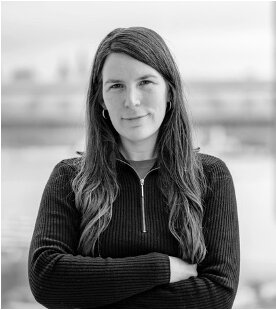
My lecture will begin by stating that artistic autonomy has never truly existed. Every artist and artistic practice exists within the world and is therefore influenced by various political aspects of society. From the neighborhood in which you were born to the academy where you did or did not study, from the cleaners of your studio, theater, or exhibition space to the audience that may or may not discover your work, from applying for grants to the themes and narratives you choose to incorporate - every artistic project is inherently political. Even if a project explicitly aims not to be political, that itself is an ideological positioning.
However, this does not mean that I want to completely discard the concept of "autonomy." It emerged as a result of emancipation from religious institutions and financial elites. This separation from church and state allowed for the development of alternative and potentially critical forms of art. Art was no longer directly dependent on its patron, which was a significant and crucial victory. This relative autonomy, as I would call it, remains highly important and relevant.
Yet, the treatment of this relative autonomy varies depending on the context. As a Dutch person, I observe how the legacy of Thorbecke regarding autonomy has led to the isolation of art from society. Artists may be subversive and critical, but their impact is diminished because, after all, "it's just art."
Working in Flanders, I experience a different situation where the arts and politics are more intertwined. Art organizations have politicians on their boards, which may create more friction and debate when an organization invites an artist with outspoken political views. At the same time, I also see that politicians are more engaged with what is happening in the arts scene, and exchange and dialogue are more natural.
This leads to an important paradox in my view: as important as the relative autonomy of the artist is, it only becomes relevant when this freedom to express one's opinions or emotions is audible and visible. It only holds meaning when the positioning of the work matters and finds a place within a broader societal conversation.
From this standpoint, I will discuss recent cases such as Ruth Lasters' role as a poet and the "Ramadan-friendly" label. I will raise questions about the true extent of our freedom when we refer to the importance of autonomy and how we precisely define it.
Keynote Sara Whyatt: Free to create? Freedom of artistic expression in Europe
Sara Whyatt is a campaigner and researcher on freedom of artistic expression and human rights. She is a member of the Expert Facility to UNESCO’s 2005 Convention on the Protection and Promotion of the Diversity of Cultural Expressions, and expert for Columbia University Global Freedom of Expression. She is also Expert for the Directorate of Democratic Participation, DG II -Directorate General of Democracy and Human Dignity at the Council of Europe. Here she provides expertise and input on freedom of artistic expression in Europe for the Council’s Free to Create|Create to be Free project. Her experience was gained through leading PEN International’s global free expression programme for many years, and, previously, as campaign coordinator at Amnesty International’s East Asia team. More recently she has focussed on freedom of artistic expression, including social and economic rights in the cultural sector providing expertise to organisations including the Council of Europe, PEN International, UNESCO, the Swedish Arts Council and Freemuse.
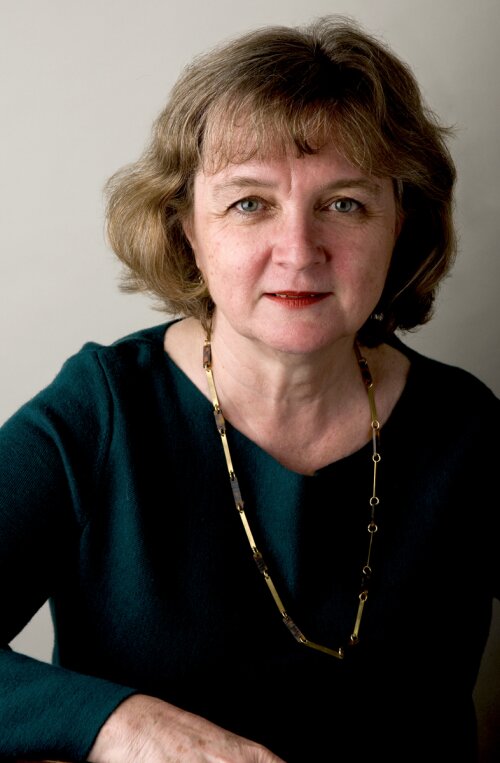
In November 2022, the Council of Europe launched its Manifesto on Freedom of Arts and Culture in the Digital Age, marking the 70th anniversary of the European Convention on Human Rights. In March 2023, the Council of Europe commissioned report, Free to Create: Freedom of Artistic Expression in Europe was published. It reviews the state of artistic freedom in Europe between 2020 and 2022. Its author, Sara Whyatt, will present the findings of this report, what freedom of artistic expression encompasses and what can be done to protect and promote this right.
The report summarises the ‘above the radar’ attacks that range from state initiated legal actions against artists and their work, to violence and threats by non-government groups. The ‘under the radar’ pressures that impact on artists’ creativity and can lead to self-censorship but which are often not easy to identify are also explored. These include undue influence of governments on museums, awards and publicly funded cultural services, the impact of funding body strategies inadvertently restricting creativity, and hostile media environments. The ways that we can all support and promote creative freedom, both under and above the radar, will also be discussed.
Keynote Prof. dr. Sebastian Olma: Autonomy and Communal Luxury
Sebastian Olma holds the research chair for Cultural and Creative Industries at the Centre of Applied Research for Art, Design and Technology (Caradt) at Avans University of Applied Sciences. Alongside his academic work, he has advised policymakers throughout Europe on the facts and fictions of the creative economy. He lives in Amsterdam, where he is involved in (sub)cultural projects such as OT301 and Amsterdam Alternative. His publications include Art and Autonomy: Past, Present, Future (2018, V2_ Publishing: see here a video with an explanation of the book) and In Defence of Serendipity: For a Radical Politics of Innovation (2016, Repeater Press). He is the founding editor of the online magazine Making & Breaking.
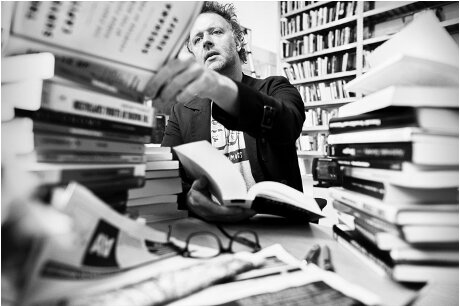
What does it mean to speak of artistic autonomy at a time when art is fully commercialized and the individual has become the linchpin of neoliberal culture? In this talk, I’m going to argue that any attempt to salvage autonomy from the ruins of neoliberalism needs to acknowledge its countercultural roots in the late 18th and early 19th century. What, then, would it mean to transpose autonomy’s countercultural charge into the present? What would art want to be autonomous from? And for what? In trying to answer these questions, the recent interest of young artists in practices of collectivity provides a valuable lead. If we are to establish art and culture as something essential to democratic citizenship and human flourishing, then we have to take the risk of re-imagining the possibilities of collective culture. As I’m going to argue, such re-imagining must start from an economy that is committed to communal luxury.
Keynote Sverre Pedersen: Does artistic autonomy exist? And how relevant is the issue?
Sverre Pedersen is Head of Production in Deeyah Khan's award-winning film production company Fuuse and working chair of Freemuse’s Executive Committee. He has been an activist for human rights and the environment as well as against racism since his early teenage years. In 2005 he was elected President of the Norwegian Film Makers Association where he worked primarily with film politics, collective bargaining, conflict resolution, copyright, international relations, and artistic freedom. He has also been on the board of the Federation of European Screen Directors (FERA) from 2015 to 2022. After he left the Norwegian Film Makers Association in 2019, he worked for two years as Campaign and Advocacy Manager for Freemuse.
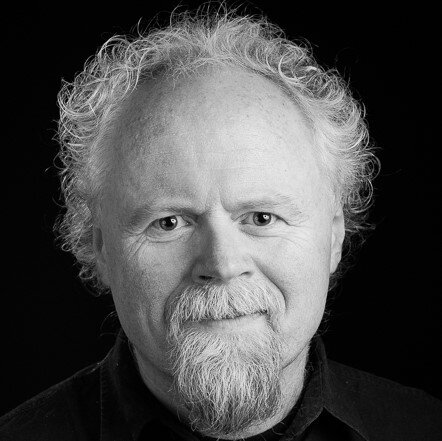
Sverre Pedersen will delve into several crucial aspects concerning artistic autonomy. To begin, he will discuss the extent to which social responsibility in order to be entitled to subsidies affects artistic autonomy and artistic freedom of expression. Pedersen will carefully analyze the the extent to which an artist must justify oneself economically affects artistic autonomy and artistic freedom of expression. Furthermore, he will examine the extent to which artists must justify themselves to gain recognition, shedding light on the potential implications for their artistic autonomy. Pedersen will also focus on the long-standing objective of the "arm's length distance principle", which for many years has been a goal of cultural policy in the Nordic region. Through critical assessment, he will evaluate whether politicians manage to live up to their own principles. Moreover, the relationship between artistic autonomy and freedom of expression will be thoroughly examined, with a specific emphasis on questions about the extent to which the discourse on artistic autonomy takes place in the art field and whether this is more of an academic issue than what actually happens in the art field. Lastly, Pedersen will address the concerning phenomenon of self-censorship in greater detail. He will discuss the various factors and mechanisms contributing to its significant increase in large parts of the world.
Bekijk het fotoverslag op onze facebook-pagina
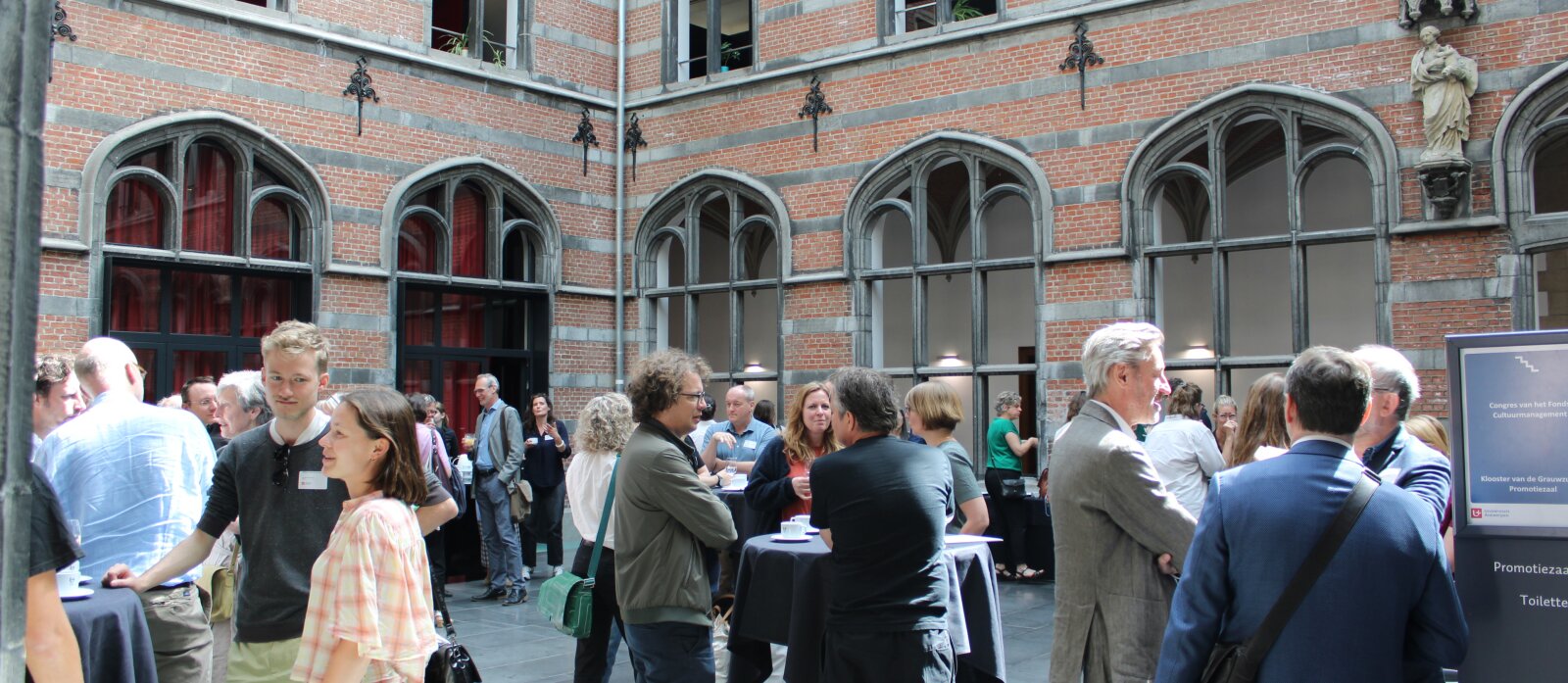
Herbekijk de opnames van het congres
- Welkomstwoord door Prof. dr. Koen Vandenbempt en Keynote Lara Staal
- Keynote Sara Whyatt: Free to create? Freedom of artistic expression in Europe
- Artistieke Autonomie: een kritisch panelgesprek (panel in de voormiddag) over de impact van overheid en maatschappij
- Keynote Sverre Pedersen: does artistic autonomy truly exist?
- Keynote Prof. dr. Sebastian Olma: Autonomy and Communal Luxury
- Artistieke integriteit versus commerciële belangen? Een kritisch panelgesprek (panel in de namiddag)